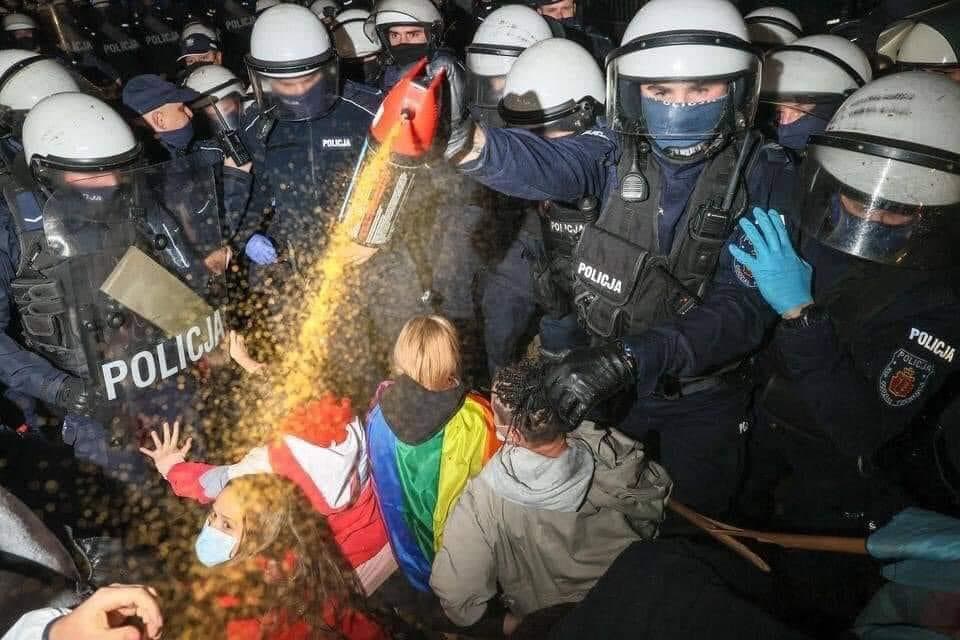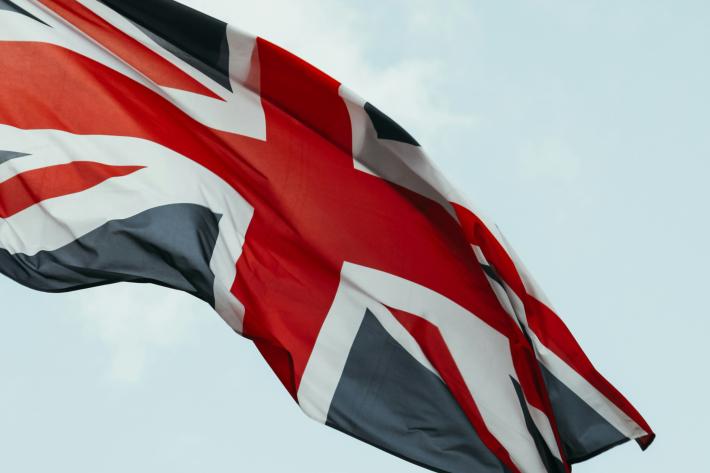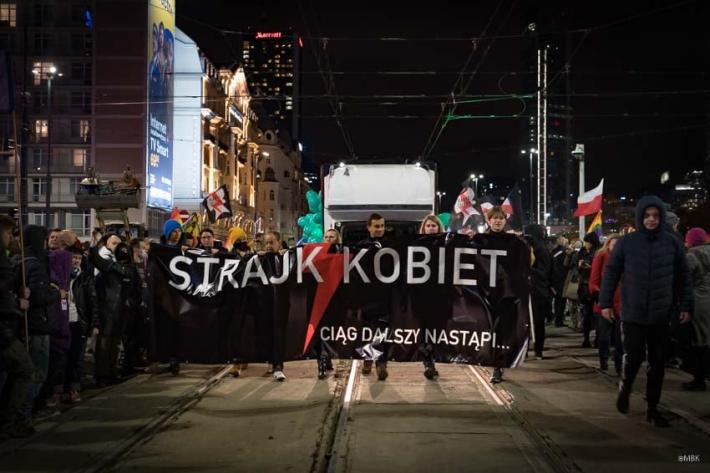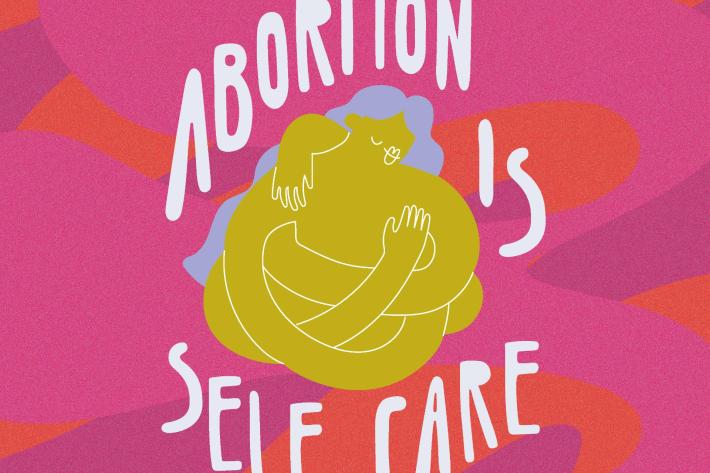
Spotlight
A selection of news from across the Federation

European Commission's new Women's Rights Roadmap includes SRHR—Now we need action
On 7 March, the EC released a new political declaration committing to uphold and advance women's rights. We welcome the inclusion of SRHR and other key topics. Now impactful actions are needed.
Filter our news by:


| 24 June 2021
European Parliament adopts landmark position on sexual and reproductive rights
The European Parliament voted today in favour of a landmark report presented by Croatian MEP Predrag Fred Matić on “the situation of sexual and reproductive health and rights in the EU”. While the European Parliament has repeatedly expressed concerns over the lack of full realisation of, and attacks against women’s rights, gender equality and sexual and reproductive health and rights (SRHR), this report is the first of its kind in almost 10 years to give such a degree of political importance to SRHR at EU level. The report addresses the full range of SRHR and highlights the importance of accessing all essential SRH services, including comprehensive sexuality education, contraception, abortion, maternal health and fertility services; and of preventing and addressing sexual and gender-based violence. The vote sends a strong signal that MEPs are fully committed to protect and promote SRHR in the EU at a time when human rights in sexuality and reproduction are increasingly challenged by illiberal leaders, even within the EU, and as the global community makes inspirational commitments to advance SRHR in the Generation Equality Forum. Neil Datta, Secretary for the European Parliamentary Forum for Sexual and Reproductive Rights, said, “Today, the European Parliament assumed its leadership role in strongly upholding the fundamental rights of all Europeans despite deliberate campaigning to incite fear and block the report. Common sense, human rights and values prevailed and MEPs were able to stand up for education and health over ignorance and religious ideology. As awareness about anti-gender movements increases, we can safeguard women’s rights, SRHR and gender equality more effectively”. "The adoption of the report today is a great achievement for the European Parliament and those involved in the negotiations - although protecting the health and rights of everyone should not be controversial. We celebrate the EU’s reinforced commitment to promoting SRHR both within and outside the EU. The EU should now take concrete steps to make the promotion of SRHR for all a priority, both in its internal and external action.” Lisa Goerlitz, Head of Brussels Office, Deutsche Stiftung Weltbevölkerung (DSW). “We now look to the Member States and the European Commission to take the report’s recommendations forward and deliver on sexual and reproductive safety, care and freedom for all. We want to see serious advances on access to sexual and reproductive care as part of a society free from sexism and discrimination,” says Caroline Hickson, Regional Director of the International Planned Parenthood Federation European Network (IPPF EN).
| 02 June 2021
Laiga launches map that provides information on abortion care in Italy
In Italy, even after 43 years from the adoption of Law 194 of 1978, access to abortion care is complicated due to arbitrary and painful hurdles. According to the law, women need to meet a doctor who certifies their abortion request. However, about 70% of the doctors in Italy deny abortion care based on their personal beliefs or convenience (art. 9 of the abortion law). Moreover, after having obtained the certificate from a doctor, women need to “postpone the decision for seven days” (art. 5 of the abortion law), thus being forced to endure a medically unnecessary waiting period. On top of all of this, there is no official information about how and where to access abortion (no institutional website, no specific sections on hospital websites, no national help-line). According to the law, all hospitals and authorised clinics must provide abortion care (art. 9 of the abortion law), but as per the last report from the Health Ministry published in 2018, in practice only about the 65% of them do offer care. Women in Italy continue to face an unacceptable array of obstacles to abortion care and some of these stem from lack of information. So, where to find information to understand how and where to access abortion care in Italy? Laiga, Free Italian Association of Gynaecologists for the implementation of Law 194, an association born in 2008 to gather all abortion providers and spread information on the application of the law and the right to abortion, just published a national map listing all hospitals and clinics providing this health care service, including telephone numbers and addresses. “It has been a very big and challenging project for the association, which took a long time and a lot of energy. During the pandemic all the information we collected in the previous years were changing, many hospital sectors closed either temporarily or permanently. Finally, as a gift to everyone who wants their right to abortion guaranteed, for the 43rd anniversary of the Italian abortion law, Laiga made it!”, said Silvana Agatone, Laiga President. Moreover, Laiga's website also clearly explaines how abortion care can be accessed in Italy: the law and the details around access, a tool to calculate the gestational age, which documents are needed, the different abortion procedures, and finally information on contraceptive care. Through the website and this map, Laiga wants to provide what is needed to actually access care, saving precious time and avoiding delays that might harm women. By Giorgia Alazraki, Laiga Read the press release of Laiga in English.

| 19 May 2021
The EU takes bolder action against Poland and Hungary over vast abuses
We strongly welcome the decision of the Portuguese presidency of the Council of the EU to take action on the deteriorating situation in Poland and Hungary. For too long these EU member states have been allowed to get away with violations of the rule of law and of human rights. Women and the lesbian, gay, bisexual, and transgender (LGBT) community, in particular, have seen their rights eroded. Citizens and media have been silenced, judges and academia have been exposed to attacks. The Portuguese presidency is now set to move forward with proceedings against Poland and Hungary for violations of European values, by holding hearings under Article 7(1) TEU. In the case of Poland, European citizens want the European Union to seriously treat the vast abuses of the rule of law and fundamental rights by addressing: the erosion of judicial independence; the compromised Constitutional Tribunal, which is undermining human rights including women’s rights; violation of the right to peaceful protest and targeting of women’s rights organizations. The abuses perpetrated by the ruling coalition in Poland can no longer be condoned by the EU. “Polish citizens’ lives have been at stake for too long. From government-backed police brutality and smearing in right-wing media targeting peaceful protesters, to death threats against women’s rights defenders, a near-ban on abortion care and threats to withdraw from the Istanbul Convention that protects women from violence, all has led to an atmosphere of terror.” said Irene Donadio, Senior lead of strategy and partnership at the International Planned Parenthood Federation European Network (IPPF EN). The Hungarian government declared a state of emergency – under the pretext of Covid -, seizing unlimited power to rule by decree without parliamentary and judicial review. The government interfered with independent media and academia, launched an assault on members of the LGBT community, and undermined women’s rights. “Things have been escalating for some time now, and it all stems from the collapse of the rule of law in both countries” added Irene Donadio. These hearings are a much-needed step, but only the beginning. We call on the Council of the EU to make full use of Article 7 to hold the two governments accountable, including to issue concrete recommendations on the rule of law which the Polish and Hungarian governments should urgently implement, and to move swiftly towards determining that there is a clear risk of a serious breach of the rule of law in both countries. The situation has in fact deteriorated far beyond the point of a mere “risk” of a breach to the rule of law. Beyond Article 7, the EU must urgently use the new mechanism that links EU funding to respect for the EU's core democratic values. As the EU is preparing an historic financial package meant for post-COVID recovery, stronger steps need to be taken to prevent the political distribution of EU money that would cement authoritarian power in Poland and Hungary. Poland and Hungary have been able to get away with too much for too long, trampling on EU values whilst receiving EU support. Enough is enough. The EU must stand up for itself, and these hearings are a strong signal in this direction. Overview of the situation in Poland. Press contact: Irene Donadio: +32 (0) 491 719 390

| 11 May 2021
A vote for women's health, safety and freedom in the EU (statement)
On the tenth anniversary of the Istanbul Convention - the most far-reaching international legal instrument to set out binding obligations to prevent and combat violence against women - the European Parliament Women’s Rights and Gender Equality Committee (FEMM) voted today in favour of the report presented by MEP Predrag Fred Matić on “the situation of sexual and reproductive health and rights in the EU” by 27 votes in favour. This resolution is the first European Parliament Report specifically dedicated to SRHR in almost 10 years. “The report provides an in-depth analysis of SRHR, recognising that SRHR is not only a human rights issue; it is also intrinsically linked with gender equality, women’s empowerment and combating gender-based violence. The report also provides a way forward on how the EU can deliver on reproductive freedom, safety and dignity for all”. – Caroline Hickson, Regional Director of the International Planned Parenthood Federation European Network (IPPF EN). The report gives a high level of political importance to SRHR at EU level at a crucial time, with challenges in accessing the whole range of SRHR being compounded by COVID-19 measures and some Member States backsliding on women’s rights, gender equality and SRHR across Europe and globally. “SRHR are at the core of several EU competency areas, including health, gender equality and non-discrimination, combating gender-based violence, fundamental rights and the rule of law. The EU is a longstanding SRHR supporter in its development and human rights policies and needs to safeguard SRHR both within and outside the EU for everyone.” – Cécile Vernant, Head of EU Advocacy at Deutsche Stiftung Weltbevölkerung (DSW). The Report has been tabled for a plenary vote at the European Parliament in June. EPF Secretary Neil Datta added: “Europe has a responsibility to take up a global leadership role on these issues, and this vote today is an important first step. It is crucial that we continue to work vocally in support of women’s rights, reproductive freedom and gender equality, and a positive result in the plenary will send a strong signal that MEPs are fully committed to protect and promote SRHR in the EU.”

| 31 March 2021
Poland: Escalating Threats to Women Activists
Investigate, Protect Rights Defenders, End Hateful Rhetoric (Berlin, March 31, 2021) – Bomb and death threats targeting at least seven groups in Poland for supporting women’s rights and the right to abortion are disturbing reminders of escalating risks to women’s human rights defenders in the country, Human Rights Watch, CIVICUS, and International Planned Parenthood Federation European Network (IPPF EN) said today. The authorities should urgently investigate, protect the women targeted and hold those responsible for the threats accountable. Polish officials should also counter abusive misinformation campaigns targeting activists. “The increasingly hostile and even violent environment for women’s rights and their defenders in Poland should ring alarm bells for Polish authorities and European Union leaders,” said Hillary Margolis, senior women’s rights researcher at Human Rights Watch. “Women’s rights defenders should be able to express themselves publicly, including when they oppose government policy, without having targets on their backs.” Human Rights Watch, IPPF EN, and CIVICUS collected information between March 15 and March 26 from seven organizations in Poland that have been threatened due to their work for or perceived support of women’s rights issues, including Abortion Dream Team, Federation for Women and Family Planning (Federa), Feminoteka, FundacjaFOR, Helsinki Foundation for Human Rights, Women’s Rights Centre (Centrum Praw Kobiet), and All-Poland Women’s Strike (Ogólnopolski Strajk Kobiet). At least six human rights organizations in Warsaw, including the women’s rights groups Feminoteka, Women’s Rights Centre and Women’s Strike, received bomb threats via email on International Women’s Day, March 8, 2021. The threats said they were “payback” for supporting the Women’s Strike movement, which has been at the forefront of mass protests following increased restrictions on access to legal abortion. Some organizations received the threat at multiple email addresses. Federa, a reproductive rights group, received bomb threats via email on March 12 and March 23. Members of the Women’s Strike and the Consultative Council (Rada Konsultacyjna), an independent body of groups established to develop legal and policy measures to address Women’s Strike protesters’ demands, received further bomb threats via email on March 20 and March 23. The March 20 threats targeted a performance on that day by an artistic collective in central Warsaw at Szklany Dom (Glass House), near the residence of Deputy Prime Minister and leader of the ruling Law and Justice party (Prawo i Sprawiedliwość, PiS) Jarosław Kaczyński. The performance proceeded following checks of the building by police. Warsaw city council member Dorota Łoboda, a member of the opposition Civic Coalition and active supporter of women’s rights and the Women’s Strike movement, also received bomb and death threats. The district prosecutor’s office is reportedly pursuing an investigation into threats against Łoboda. Staff members at Feminoteka, Federa, Women’s Rights Centre, Women’s Strike, FundacjaFOR, Helsinki Foundation for Human Rights, and Grupa Stonewall reported bomb threats received between March 8 and March 23 to police, who checked the premises of their offices and found no evidence of explosive devices. However, some said that the police minimized the security risks and made no commitment to open and pursue a full investigation. Only one person who had reported threats had been told by the police after she inquired that they sent the file to the prosecutor, but she received no information about whether the prosecutor would pursue the investigation. These escalating threats come amid ongoing public protests led by the Women’s Strike movement following an October 2020 ruling by Poland’s politically compromised Constitutional Tribunal that virtually eliminates access to legal abortion. The ruling officially took effect after publication in the national Journal of Laws in January. Activists said their sense of insecurity is heightened by government rhetoric and media campaigns aiming to discredit them and their work, which foster misinformation and hate that can put their safety at risk. “I feel like I am not safe here and that they [the government] make choices about who deserves protection and respect,” said a Federa staff member. “For me this is very serious, because it is not just some freaks who send us a message [saying] ‘you are a murderer.’ It is in the whole context of what is going on in Poland, where what we are doing is really perceived as something evil.” Several women’s rights defenders have been detained or face what they claim are politically motivated criminal charges, including for allegedly praising vandalism of churches, obstructing religious services, and creating an “epidemiological threat” for protests held during the Covid-19 pandemic. “Instead of stoking anger against those trying to uphold basic rights, Polish officials should focus on doing everything in their power to protect women and women’s rights, including the rights to peaceful assembly and free expression, to access safe and legal abortion, and to be protected from violence,” said Aarti Narsee, Civic Space researcher at CIVICUS. Police should thoroughly investigate threats of violence against women’s rights and other human rights defenders and punish those responsible, the organizations said. They should work with those targeted to put in place security measures to ensure women’s rights defenders can continue their work without fear of violence or reprisals. Prosecutors should drop any politically motivated and baseless charges against activists. Officials should counter public campaigns aimed at spreading misinformation about and generating hatred toward women’s and human rights groups. European Commission officials should press Polish authorities to investigate threats and hold those responsible to account, and guarantee the right to peaceful protest without fear of reprisals or violence. The European Commission should also press Polish government officials to refrain from using hostile rhetoric against women’s rights activists and other critics of government policies. “This is simply another indication of how far the rule of law has fallen in Poland, and the impact that has on basic freedoms for everyone,” said Irene Donadio, senior lead on strategy and partnership, IPPF-European Network. “Allowing Poland to continue flagrantly disregarding and undermining these rights without consequence is dangerous not only for women and girls in Poland, but throughout Europe.” For detailed accounts and additional information, please see here.

| 05 March 2021
Women human rights defenders in Poland - Interview
An interview with Marta Lempart from Strajk Kobiet (Women’s Strike) How does it feel to be a woman human rights defender in Poland, at a time like this? As women, I think we are born and raised to endure harassment of different types. When you are a woman, if you do something that doesn’t fit in, you will be punished for it. Ostracized. We weren’t unprepared for that. We’re prepared for that since the day we are born, to be harassed for having opinions, speaking loudly or not agreeing with what is happening. It’s just a matter of scale and I think it is much harder for the people who are not in the spotlight as much as me, who suffer and fight without recognition. We actually have a whole program dedicated to supporting activists who are in burnout. We’re at the stage where most of us need help, because this is hard. Being subjected to smear campaigns by the local media who is purposefully targeting local leaders and activists is very difficult and puts a lot of pressure on people. But we will continue to fight, we will not waver. How does it feel to be marching for basic rights to safety, security and protection from torture in Poland in the year 2021? The fact it's 2021 is not the worst part: I’m thinking of those who marched 20 years ago, with no massive movements. Many more rights were accessible back then but I think their frustration was even worse than ours now. Now, we’re so many. It’s a massive event. We’re at that stage of every human rights movement when it becomes massive and when regular people – not only join it, but help build it up. The fact that it’s 2021, that’s just how it is. We’ve been talking a lot about the Argentinian struggle. In their battle for safe and legal abortion, they had to fight so much, even take some steps backwards when they lost in the Senate, but they prevailed. That said, it was certainly unfair that they had to go through all those struggles for a right that should be guaranteed. What does a society post-ultraconservatism look like for you? Some human rights have been forgotten, we need to build them up again and defend them. Poland was about democracy, free media, free judiciary, free elections. But we lost that. We managed to create this ‘democracy’ that doesn’t care about human rights, in particular women’s rights, LGBT, minorities, senior, disabled, lower income people’s rights. We built a country that has economic policies, but it doesn’t have coherent and strategically planned social policies for everyone to be protected. We’re determined to not make that mistake again. I think young people will make sure of that and ask for a democracy that values human rights. Things are changing. For the first time, the opposition party announced that they are in favour of legalizing abortion. They are now forced to acknowledge it’s an element that’s important in public life. Polish people will never be silent again. What is happening in terms of protection of women from violence in Poland at the moment? Our government is copying the Russians. The Polish Minister for Social Policies, Labour and Family drafted an official government bill that follows the Russian example in saying the first act of domestic violence is not domestic violence, domestic violence has to happen more than once to be seen as such. This bill would also dismantle our ‘blue card’ system which ensures the obligation of any institution (police, social workers, teachers, NGOs etc) to flag cases of domestic violence. The bill would also lift the obligation of the state to provide a helpline for survivors of domestic violence. The only thing that stands in the way of adopting this bill is the Istanbul Convention on preventing violence against women. So the government is now pushing to withdraw from the Convention, the single, most powerful international tool meant to fight violence against women. They are fighting the Convention on two fronts: first is the civic bill which demands Poland’s withdrawal from the Convention - this is currently up for debate in the Parliament, then there is the review of the Convention being conducted by the illegally-appointed Constitutional Court. Sounds familiar to what brought us the virtual abortion ban, doesn’t it? This is not only a human rights issue, but an issue of rule of law and judicial independence. If the EU institutions don’t stop pretending this is the case and sanction Poland, we will live in a state that will not pursue cases of domestic violence. How do you position attempts to deny women's freedom within the broader assault on democracy and civil liberties in Europe? Backsliding on human rights in Poland would have been impossible if we had judicial independence and if we had the rule of law. But we don't. It has been teared down now. It's a kind of a loop for me also because, when the whole thing started in 2015, the first protest that I attended was not a protest against the abortion ban, but judicial independence – for the independence of the Constitutional Court. And five years after, we're back at the same place. It took us 5 years to actually answer the question: why is it important? Now we know why these illiberal forces took over the Polish Constitutional Court. They need it to change any law they want, to strike down any right they want, to take away any freedom they want, and pretend that this is the Court's ruling. In the past, it was too abstract - democracy, judicial independence, the rule of law - these were just words for many people in Poland. Now people understand how important it is. It's really sad to see that the European Institutions don't understand that, that European politicians don't understand that, or they just try not to see the link. What would your message to EU citizens who want to support Polish women's fight for dignity and freedom be? Write to a politician, choose one European politician, choose one national politician, and tell them that Polish people are Europeans and they need to be fought for. And that everything that’s happening to human rights and women's rights in Poland is happening because of the erosion of the rule of law and destruction of judicial independence. Tell your politicians to sanction the Polish government, to use budget conditionality. We don't need their mercy, we don't need them to cry their tears about the sad lives of Polish women and make populist statements, we need them to see us as part of the European community, as equal citizens and act. We see similar backsliding trends in Italy, Croatia and Hungary and many other countries. At some point, we also did not imagine - could not imagine - that we could lose so many rights. But we did. It can happen anywhere. What gives you hope on this day? I am sure that we will win. And I see this in young people, - they are the ones that will actually decide what will happen, and they are having these protests with music and dancing because they know that this will just be a phase. They wouldn’t dance in the streets if they didn't believe that it was just a phase. And that we will win. Photo credited to MBK.
















